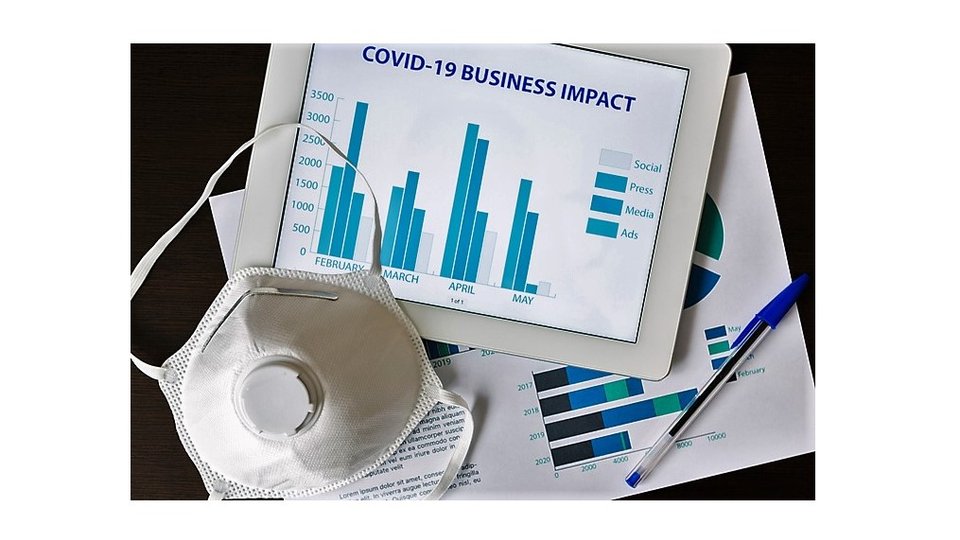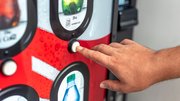Vending
COVID-19’s impact on convenience services by the numbers
An economic impact study, sponsored by the National Automatic Merchandising Association, puts some hard numbers to the challenges and successes in the industry's response to COVID-19. The research has been used as a lobbying tool and management tool for individual companies.

November 18, 2020 by Elliot Maras — Editor, Kiosk Marketplace & Vending Times
Today's business environment continues to be a struggle for many industries. Convenience services can take some consolation in that it has managed to protect many of its members through collective action.
Research sponsored by the National Automatic Merchandising Association puts some hard numbers to both the challenges and successes in the industry's response to COVID-19.
John Dunham, president of John Dunham & Associates, a Brooklyn, New York-based economic impact consultancy, presented the results of an impact analysis of convenience services during a NAMA webinar last week, titled, "The economic landscape of convenience services."
Dunham began his presentation with a statistical analysis of the industry in terms of number of jobs, number of companies, sales, taxes and overall impact on the economy — before and after COVID-19.
While discussing the sometimes disconcerting numbers, Dunham explained the data has proven helpful — both as a government relations tool and a business management tool for individual companies — to help minimize COVID's negative impact.
What the numbers show
Since COVID, there have been 18,320 direct job losses, which refers to jobs in operator companies, 12,650 supplier job losses, close to $1 billion in direct wages lost and an equal amount of supplier wage losses.
The greatest number of direct job losses were in coffee services, with 11,877 jobs lost, followed by vending, with 3,208 jobs lost, followed by micro markets, 1,939, manufacturing, 1,032, and "other," 181.
The industry has been able to mitigate some of these challenges, Dunham said.
"NAMA and the government affairs team have been able to get convenience services industry classified as an 'essential' industry," he said. Industries recognized as "essential" were allowed to maintain work schedules during lockdowns.
"All told, about 13,000 jobs have been saved because of this designation," he said.
NAMA's advocacy efforts protected more than 5,200 direct jobs in convenience services, he added, accounting for more than $240 million in direct wages and $920 million in economic output nationwide.
Not all industries that Dunham works with have been as successful, such as the motor coach industry, which has lost 95% of its business, he said, or airlines, which are running at about one third of capacity.
A lobbying tool
The impact study has use for lobbying, as it identifies linkage between an individual firm or industry segment with more than 500 different industries nationwide, he said. Such information can help with scheduling networking events, chamber events or other types of events.
"How do you help that advertising executive you meet at the rotary event? All of that is in this analysis," he said. This helps in developing allies for lobbying and government affairs, he added.
"Communicating the importance of an industry is extremely important," Dunham said. "You want to be the experts in your industry. You don't want your adversaries determining the information in the numbers in your industry. You don't want the government determining the information in your numbers in your industry."
Mike Goscinski, NAMA director of federal and state affairs, agreed the study is critical to NAMA's government advocacy. The information allows NAMA to explain to lawmakers how the convenience services industry affects jobs and tax revenue.
For instance, NAMA can tell a lawmaker how many people will be affected by a policy proposal.
NAMA was able to show New York Gov. Andrew Cuomo how convenience services was important to his business reopening guidelines, he said.
"We were able to work directly with the governor's office to have him edit the guidelines he had already up on his website to allow for convenience services to begin operating again in the city of New York and the state of New York," Goscinski said.
NAMA has since been letting lawmakers know the industry is still struggling, he said.
The next COVID relief package will hopefully expand relief, Goscinski said. This includes expanding access to the paycheck protection program, establishing a tax credit for unmerchantable products, liability protections, federal income tax exemption for front line workers replenishing machines and employee retention tax credit.
A business improvement tool
Dunham also discussed how the data in the study, much of which is available on the NAMA website, can help individual companies. This includes aggregate data on total economic output, jobs, wages and taxes.
"There is a lot of information you can pull out of here that can help you with your own operations," he said.
The impact of an individual company on its locality can be identified from the study, Dunham said. The data makes it possible to calculate the output and taxes per employee.
The study is also helpful for business planning, as it includes data on customer locations, operator facility locations and operator competitor locations.
For example, the geocoded data of plant locations can help a company decide where to locate a new facility or to determine service areas, he said.
There is also data on the number and scope of businesses by type and size, which an operator can use to determine potential customer locations or service areas.
In addition there is also data on average tax payments, cost of goods sold, machinery use and variable costs by commodity by state, all of which can help in business planning.
The data also makes it possible to see where there are gaps in service coverage within a geographic area, he said.
Economic impact data is also critical to economic development grant applications for energy credits, low-cost finance, tax credits and employee subsidies, he added. This is important to convenience services firms since they often require services from local government including sidewalk cuts, zoning exemptions and traffic control measures. To get this assistance, governments require proof the companies are creating jobs and generating taxes.
"As you can see there is no silver bullet that's going to help the industry or the economy recover from COVID-19 and the shutdowns that we're experiencing," Goscinski said.
For an update on how the coronavirus pandemic is affecting convenience services, click here.
About Elliot Maras
Elliot Maras is the editor of Kiosk Marketplace and Vending Times. He brings three decades covering unattended retail and commercial foodservice.
 ChatGPT
ChatGPT Grok
Grok Perplexity
Perplexity Claude
Claude






